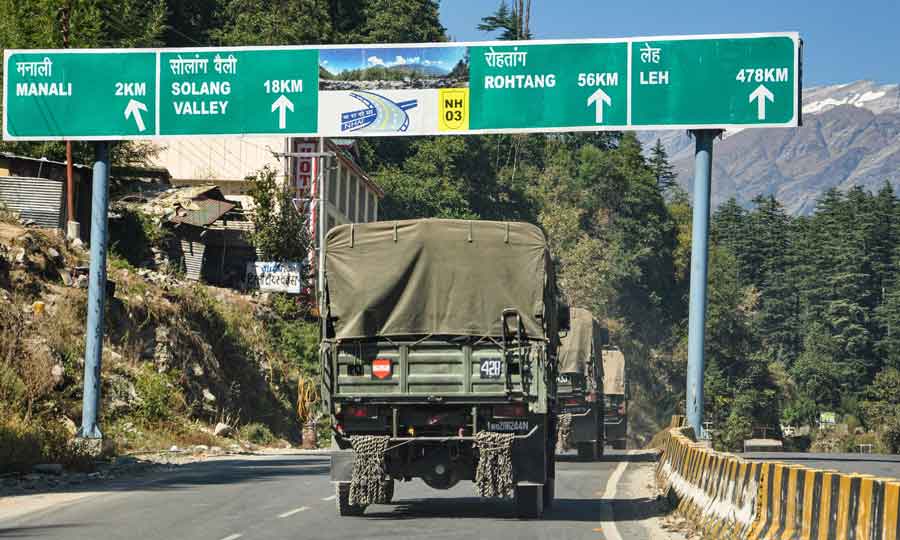The external affairs ministry is maintaining a studied silence on the claim by an adviser to Pakistan Prime Minister Imran Khan that India has expressed a desire for “conversation”.
If the claim of Imran’s adviser for national security and strategic policy planning, Moeed Yusuf, is true, it will mark a major departure from New Delhi’s stated position that talks and terror cannot go hand-in-hand. It also comes at a time India and China are locked in a border standoff and there have been allegations of cooperation between Beijing and Islamabad.
The two countries have not had a structured dialogue for four years now; and diplomatic relations also stand downgraded since August 5, 2019, when Pakistan decided not to send a high commissioner to India in protest against the scrapping of Jammu and Kashmir’s special status and asked India to withdraw its senior-most diplomat in Islamabad.
Yusuf made the claim during an interview with Karan Thapar for The Wire news portal. The interview was aired on Tuesday evening, but the external affairs ministry has neither confirmed nor denied the claim officially. There was no reaction unofficially either.
Repeated questions by journalists on a WhatsApp group of reporters covering the external affairs ministry and officials remained unanswered through the day.
“We have got a message for a desire for conversation,” Yusuf said in the interview but did not provide any details on when New Delhi had reached out to Islamabad or at what level.
Asked how the two countries could improve their relations and move forward, the academic, who returned from the US a year ago to become part of Pakistan’s strategic establishment, said: “In the past year, we have got messages about the desire for conversation.”
Yusuf went on to add that his assessment was that the outreach was made only to show to the world that Pakistan and India had talked and resolved issues.
“We want real dialogue,” Yusuf added, listing the Kashmir issue and ending “India-sponsored terrorism” in Pakistan as the two key matters that needed to be addressed. His comments appeared to be an effort to turn the tables on New Delhi, which had called off dialogue with Pakistan because of repeated terror attacks emanating from Pakistani soil. “There has to be an enabling environment to talk.… Create that and you will find us willing the next day,” Yusuf said.
Asked who had sent the message for talks, he denied it was through any back channel and brushed off attempts to pin him down by saying: “There are multiple ways to get messages across. You will be embarrassed if I tell you.…”
As for dialogue on Kashmir, Yusuf said it had to involve the Kashmiris as there were three parties to the conflict — India, Pakistan and Kashmiris.
Through the 75-minute interview, Yusuf’s refrain was that India had lost the plot in Kashmir and New Delhi was sponsoring terrorism in Pakistan through its diplomatic missions in Afghanistan. The adviser went to the extent of alleging that the Indian consulate in Jalalabad had been used by the handlers of the terror attack on the Army Public School in Peshawar in 2014 in which over 100 children were killed.
Prior to moving back to Pakistan in September 2019 to be the chairperson of the country’s Strategic Policy Planning Cell under the National Security Division, Yusuf was vice-president of the Asia Centre at the Washington-based United States Institute of Peace, a federal institution. In December 2019, he was made the Pakistan Prime Minister’s special adviser on national security and strategic planning.
American academic and a scholar of South Asian political-military affairs, Christine Fair, had accused Yusuf of being an asset of the Pakistani deep state in US academia, complaining about him to the FBI.











